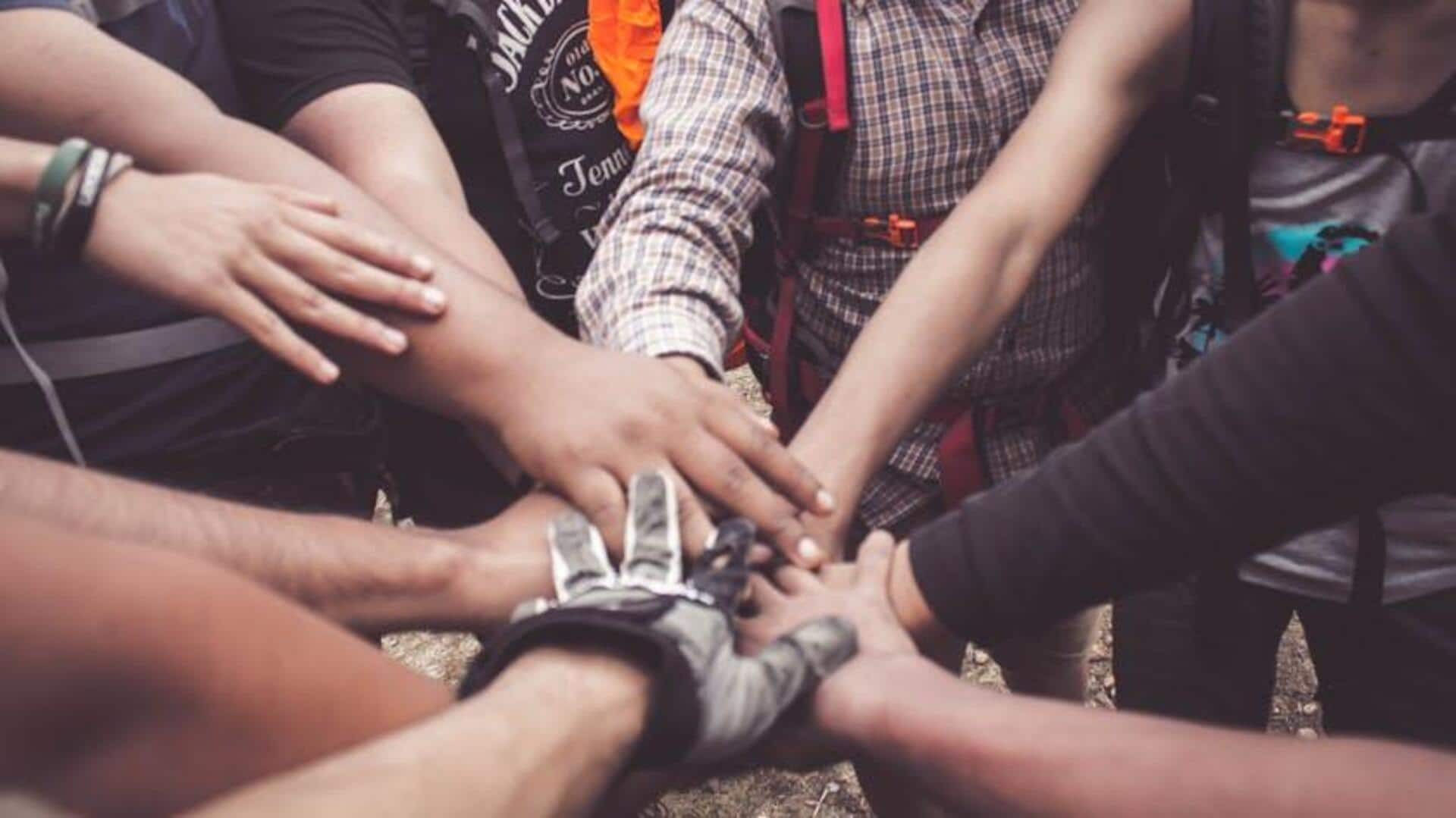
Build empathy with these 5 fun activities
What's the story
Collaborative art projects provide a unique canvas for building empathy among participants. By working together on creative projects, people can get a deeper understanding of different perspectives and experiences. These projects promote dialogue, collaboration, and emotional expression- the heart of empathy. Here's how you can use collaborative art projects to cultivate empathy in different environments.
Community engagement
Create a community mural
Creating a community mural is a collaborative effort among locals, each bringing their ideas and artistic ability. This project fosters conversations about common values and concerns in the community. As participants work together towards a common goal, they learn to appreciate different perspectives. The mural eventually transforms into a visual representation of the community's collective identity and understanding.
Cultural exchange
Host an art exchange program
An art exchange program enables people from various walks of life to exchange their artistic works with one another. This exchange promotes cultural understanding by familiarizing people with new styles, techniques, and narratives. Participants learn about each other's lives through the stories depicted in their art, bridging the gap of empathy across cultures.
Skill sharing
Organize group workshops
Group workshops allow people to learn new artistic skills together while working on joint projects. These workshops focus on teamwork and helping each other out as participants collaborate on creative tasks. By sharing knowledge and experiences, people learn to respect each other's abilities and perspectives, thus building empathetic connections.
Experiential learning
Develop interactive installations
Interactive installations invite viewers to directly engage with the artwork, often requiring collaboration between the artist and the audience member. These installations create immersive experiences that challenge perceptions and evoke emotional responses. Through active participation, individuals gain deeper insights into others' emotions and viewpoints, fostering empathy through experiential learning.
Narrative sharing
Facilitate storytelling sessions
Storytelling sessions let participants narrate their own stories using different art forms like painting or sculpture. By narrating stories in a safe space, people bond over shared human experiences such as joy or loss. Actively listening to stories of others fosters compassion by showing how much we all have in common, despite our differences.